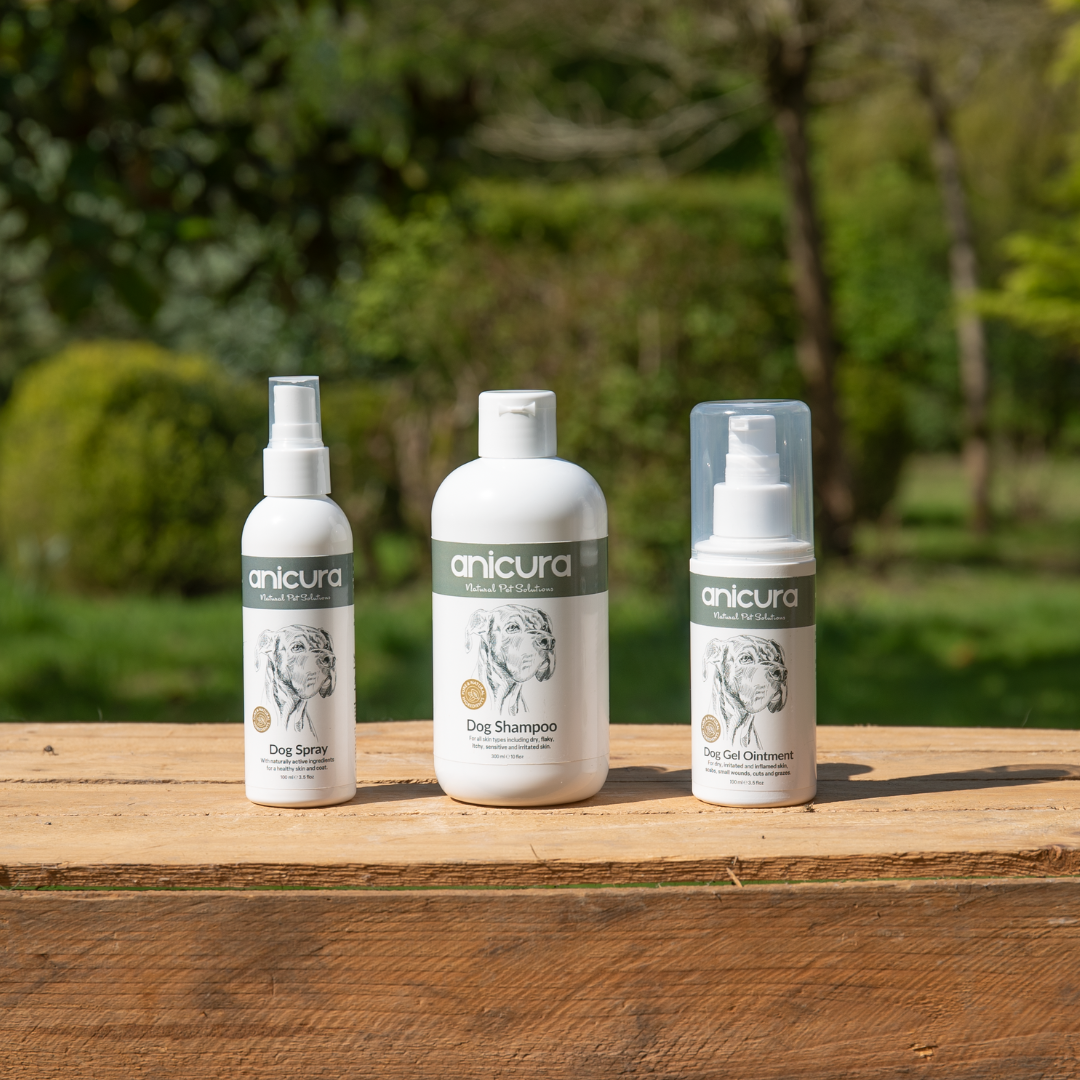As many of us know, having dogs is incredibly rewarding but it can have many challenges along the way. An important hurdle we face is how to best train our dogs. It’s not always an easy thing to do as, like humans, dogs have their own personalities and needs. However, training your pet is not only a great way to have a well-behaved dog but it also helps strengthen the bond between you and your dog.
Here at Anicura we know that skin issues can be caused by stress, and sometimes our pets might get stressed by their surrounding or new environments. That’s where training can help! Successful training can be used to reassure your pet and give them confidence in you and in themselves. We reached out to our friends at Blue Cross for their top tips on how to best approach training your pet:
What are the benefits of training your pet?
“Training our pets has all sorts of benefits. The ultimate goal is to have a well-adjusted confident companion, and training your pet helps this process along. It’s important to remember that our pets are learning about the world around them all the time, whether we think we’re training them or not, so in order to get the most out of your pet think about what it is you’d like them to learn. Spending time teaching pets in a positive way can be of huge benefit to an owner–pet relationship, and also provides a great outlet for channelling their behaviour appropriately. It’s also really fun!”
How can training help settle a new pet into your home?
“Think about the things that are important in your home and how you might like to achieve that – however be prepared that each pet is an individual with differing needs. Start off gently with cues they may already know if they’re older, such as ‘sit’ and offer them something really tasty in return, or a good game with a favourite toy. In the early days a dog may need some time to settle into their new home before they can start learning cues. Take this time to build a positive relationship, rewarding interaction with you calmly.”
How can you best approach those initial training hurdles?
“The first thing to think about is what motivates your dog. What is it that they’ll work for? For some dogs, this will need to be something really tasty like cooked chicken or cheese, and others will be happy with a small piece of carrot. Some dogs prefer play or a fuss from their owner as a reinforcer for their behaviour. Regardless of their age, finding what motivates them is key. Puppies and younger dogs tend to be very motivated to learn, but also need to learn how to behave appropriately and channel their energy into an appropriate activity, older dogs can sometimes be harder to motivate if it’s not something they’re used to, but often have a bit less energy that needs channelling. Work at your dog’s pace and make things easy so they’re more motivated to keep trying. It’s important to offer the reward at the right time, in order to reinforce the right behaviour.”
What are some essential behaviours dogs should learn?
“Firstly, strong recall so you can always call your dog back, especially in an emergency, such as they’ve escaped, or a lead has snapped or been dropped. Loose lead walking will make walks more pleasurable, and less stressful for both pet and owner. Finally leave/off is very important so your dog does not grab things they shouldn’t. “
If you’re struggling with your pet, where can you go for help?
“If you’re struggling it’s important to reach out for expert help from a trainer or behaviourist registered with the ABTC – this means they are fully accredited. Blue Cross also has a wealth of information available on our website with many training tips, hints and videos!”
How can you work on strengthening your bond with cat?
“Cats are much more reliant on their environment being optimal than having a relationship with a person, they generally don’t rely on social interaction and are naturally a solitary species. Ensuring your cat’s environment offers as much space, height to climb, and places to hide will be really beneficial, and when ready offer them time to explore outside their home. Giving cats time and space helps to reduce any social pressure we might inadvertently put on them, so try to avoid encouraging them to you with too much eye contact. Cats need to be motivated to learn cues too, so if you can find something to motivate them, they can be clicker trained!”












